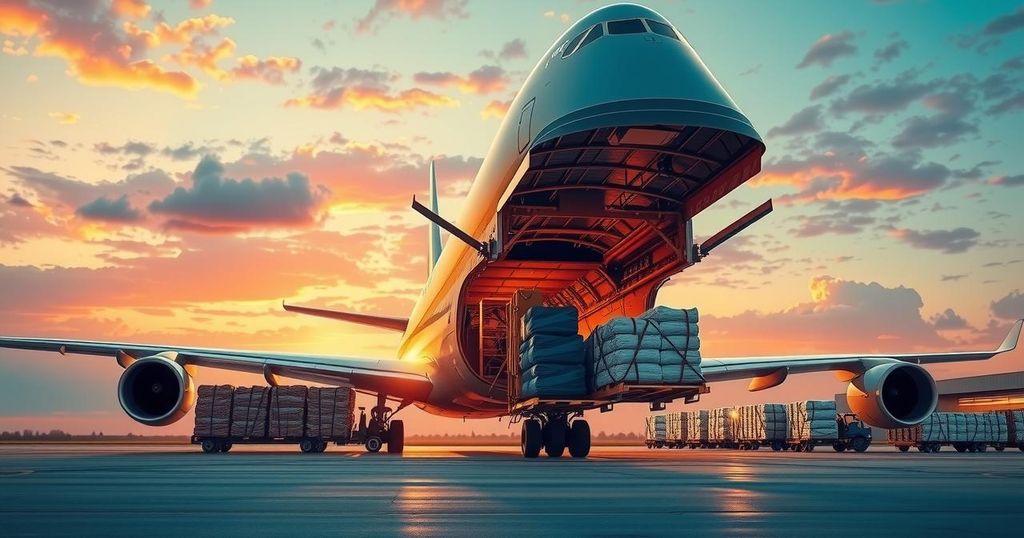Pakistan Sends Relief Supplies to Earthquake-Hit Myanmar

Pakistan has sent 35 tonnes of relief supplies to Myanmar after a 7.7 magnitude earthquake killed nearly 3,000 people. The aid includes tents, blankets, and food. The UN highlighted severe shortages of water, shelter, and medical supplies, complicating recovery efforts, while warnings of potential cholera outbreaks have emerged due to the dire conditions.
In response to the recent earthquake in Myanmar, the government of Pakistan dispatched a relief consignment weighing 35 tonnes. This initiative was taken under the directives of Prime Minister Shehbaz Sharif, with Minister for Parliamentary Affairs Tariq Fazal Chaudhry overseeing the cargo flight’s departure from Islamabad International Airport. The aid package comprises essential items such as tents, blankets, tarpaulins, water modules, ready-made food, and medicines, which will be delivered to the Myanmar authorities at Yangon airport.
The earthquake, which struck last week, has resulted in a death toll of 2,719 according to the chief of Myanmar’s ruling junta, Min Aung Hlaing. He also noted that 4,521 individuals sustained injuries and 441 are missing following the 7.7 magnitude quake. The situation remains dire as people are lacking shelter, clean water, and medicine, leading to significant challenges in recovery efforts, as stated by the United Nations’ Office for the Coordination of Humanitarian Affairs (OCHA).
The earthquake inflicted substantial damage on critical infrastructure, including major roads and bridges. OCHA’s Myanmar Resident and Humanitarian Coordinator, Marcoluigi Corsi, emphasized the urgency of the situation, asserting that, “The time window for critical search and rescue is narrowing … Shelter, clean water, medicine are in short supply. People in affected areas spent the night in the open because there is no electricity or running water.”
Concerns about a potential cholera outbreak are rising as multiple UN agencies have warned of severe drinking water shortages. UNICEF’s Deputy Representative, Julia Rees, described the situation as extremely critical, stating, “It is really dire — the most immediate need is water, it is super hot out there… Water pipes and septic tanks have broken.”
Furthermore, the World Health Organization reported that hospitals are overwhelmed with patients and are running low on medical supplies. The UN’s Refugee Agency (UNHCR) recognized this as a top-level humanitarian crisis and is mobilizing emergency supplies including plastic sheets, sleeping material, and mosquito nets. However, response efforts are hindered by extensive damage to transport infrastructures, with UNHCR stating it took their teams 13 hours to travel from Yangon to Mandalay, a journey that typically takes eight hours. Babar Baloch, a representative from UNHCR, indicated that the most pressing needs are shelter and relief items, along with the added risk of explosive ordnance from ongoing conflicts in the region.
The humanitarian crisis in Myanmar following the devastating earthquake necessitates urgent international aid and response efforts. Pakistan’s timely dispatch of relief supplies highlights the importance of solidarity in times of disaster. However, ongoing challenges, including infrastructure damage and shortages of basic necessities, emphasize the critical need for coordinated assistance and intervention from global humanitarian organizations.
Original Source: www.thenews.com.pk






